How to Reduce Bloating and Improve Digestion
From a registered dietitian and weight loss coach
We’ve all experienced bloating, constipation, and generally feeling “off” digestively. This may be something you experience frequently, or something that you only notice when you are on vacation or have something else that throws you far off your normal routine.
I’ve noticed too that when digestion is "off”, its hard to lose weight. I’m guessing this is from increased inflammation and also that the longer your food "sits”, the more calories are absorbed from it.
What you eat and drink (surprise surprise!) has a big impact on your digestion!
Drink water
Sodium causes you to retain water, which makes you feel bloated. While it may seem counterintuitive, drinking water can help reduce bloat by ridding the body of excess sodium. You “flush it out” so to speak.
Put this into practice by having an extra glass of water when you sit down at a restaurant, or before eating what you know will be a high sodium meal at home (such as mexican or asian).
If you have trouble with this - visit my blog post on drinking more water!
Limit protein bars and other “low carb” foods
You may have already learned the hard way that as wonderful as fiber is, there is such a thing as too much. Whenever you eat a ton of fiber in one sitting it can cause gas, bloating, constipation, and cramping.
While this can sometimes happen with naturally fibery foods (like beans), it’s much more likely to happen with bars (and other foods like low carb tortillas) because of the super-high concentration of fiber.
When you see “net/low carbs” or a super high level of fiber, look out for chicory root, inulin, or oligofructose on the ingredients label.
Another issue specific to these foods: fiber works best when you have water in your system, because it absorbs water to soften things up. When you eat fruits and veggies, you naturally get some water with the fiber. But since bars, tortillas etc are pretty dry, if you don’t drink water with them, you might have a dry mass sitting in your gut.
Switch your cold drink to a warm one
Drinking warm water on an empty stomach in the morning improves bowel movements. It also can activate your GI tract after sleep to promote good breakfast digestion.
Warm water may also decrease your stress levels by promoting good circulation to your central nervous system. Some people find that having lemon in their warm water helps them even more.
Limit Lactose
Lactose is found in dairy, especially in milk, soft cheese, non-greek yogurt, cottage cheese and ice cream. Your body needs an enzyme called lactase to break down lactose, and everyone has a different amount of this enzyme.
If you don’t have enough, then the lactose is fermented by bacteria and releases gas. This may lead to symptoms like bloating, diarrhea, stomach pain, and gassiness.
Reducing your dairy intake may help eliminate symptoms of bloating. Everyone has a different threshold, but I’ve found that having more than 3 servings of dairy per day seems to not… go well for most people.
Eat your Fruits and Veggies
Fruits and veggies both have a ton of micronutrients, vitamins/minerals, phytochemicals and fiber! Fiber helps with constipation by stimulating the movement of food through the digestive tract and softening the stool.
Including more fruits and vegetables at your meals, in addition to keeping our blood sugar levels more stable, can keep you feeling full longer. Fiber also helps to lower the “bad” cholesterol in our blood (LDL-cholesterol)
Reduce carbonation
The gas that you swallow when you drink soda and other bubbly drinks -- beer, champagne, seltzer -- can fill up your digestive system and make you full of gas too! This can also happen when you eat too fast, so slow down and keep those air bubbles out of your gut if you are bloated.
Counterbalance Alcohol with Water
Alcohol can slow digestion and increase water retention. Alcohol initially will make you have to pee more, and eventually it can make the body dehydrated. Dehydration tells the body to hang onto water, and then you end up with that puffy-belly feeling.
To help with this, have a glass of water for every alcoholic drink. This also will help prevent hangovers, and probably will naturally result in having less alcohol since you need to have water in between.
Limit sugar alcohols
Sugar alcohols have become a staple for reducing the carbs in foods, since they aren’t digested by your body. But sometimes the bacteria in your gut DO digest them, and they release gas when they do. This can cause you to feel bloated, and can cause constipation or diarrhea.
How much is too much depends on the person since we all have different gut bacteria. Generally speaking, the more sugar alcohol in your foods, the more likely you are to have a problem.
Look for these sugar alcohols on the label: erythritol, hydrogenated starch hydrolysates (HSH), isomalt, lactitol, maltitol, mannitol, sorbitol, aspartame, and xylitol. Most of these end in “-ol” which makes them easier to remember.
Stevia and Monk fruit seem to be better tolerated digestively, but may still cause you issues so its worth experimenting.
Resistant starches
Have you ever kept leftover rice, oats, or potatoes and noticed that the texture is different after being cooled? This is called a “resistant starch”
Some people find that having resistant starches improves their digestion, and some people find that it makes bloating and constipation worse.
This is because resistant starches are a powerful prebiotic, meaning they feed our gut bacteria. If your gut bacteria aren’t getting enough food, then more helps! And if they are getting too much, they release extra gas which causes bloating.
Play with your leftovers and see how your body reacts!
Limit broccoli, cauliflower and cabbage
Have you ever felt super bloated after a healthy meal with cauliflower rice? These foods “cruciferous vegetables” are harder to digest than other veggies, especially when raw or eaten in large quantities. This is something to watch out for now more than ever, with cauliflower replacing the starch in pizzas, mashed potatoes, rice and more.
Limit gluten
Ah gluten… you knew this would come up at some point in this list. It’s been a controversial subject for years. In my opinion, the type of gluten matters. Have you ever been to Italy and felt fine on the high amount of pasta and bread? If so, then its likely the TYPE of gluten more than anything.
Gluten is often paired with sugar. They are going to combine forces and amplify one another in impairing digestion. This is especially true with things like cakes, cookies etc but there is also a lot of sugars in our breads, cereal….. The list goes on and can often cause the problems with gluten free options.
The type of wheat can have a big impact. But that’s pretty hard to control. Rye seems to be easier on the system than other wheat varieties.
Processing. There are parts of wheat that help us digest it, but they are often processed out to make a better textured product. Stone ground flour keeps those parts of wheat and can make it easier to digest. Usually a good bakery will use stone ground flour.
Sourdough bread can often be easier to digest, since the fermentation begins the breakdown of gluten before you eat it. The fermentation process also makes the vitamins and minerals easier to absorb.
Try some of these strategies and see if they help you reduce bloating and improve your digestion. Everyone is different, and some factors may or may not be an issue for you, but you won’t know until you experiment and see!
PS: Click here for some ideas on non-alcoholic drinks, and here for The Secret to Better Health and Digestion!




